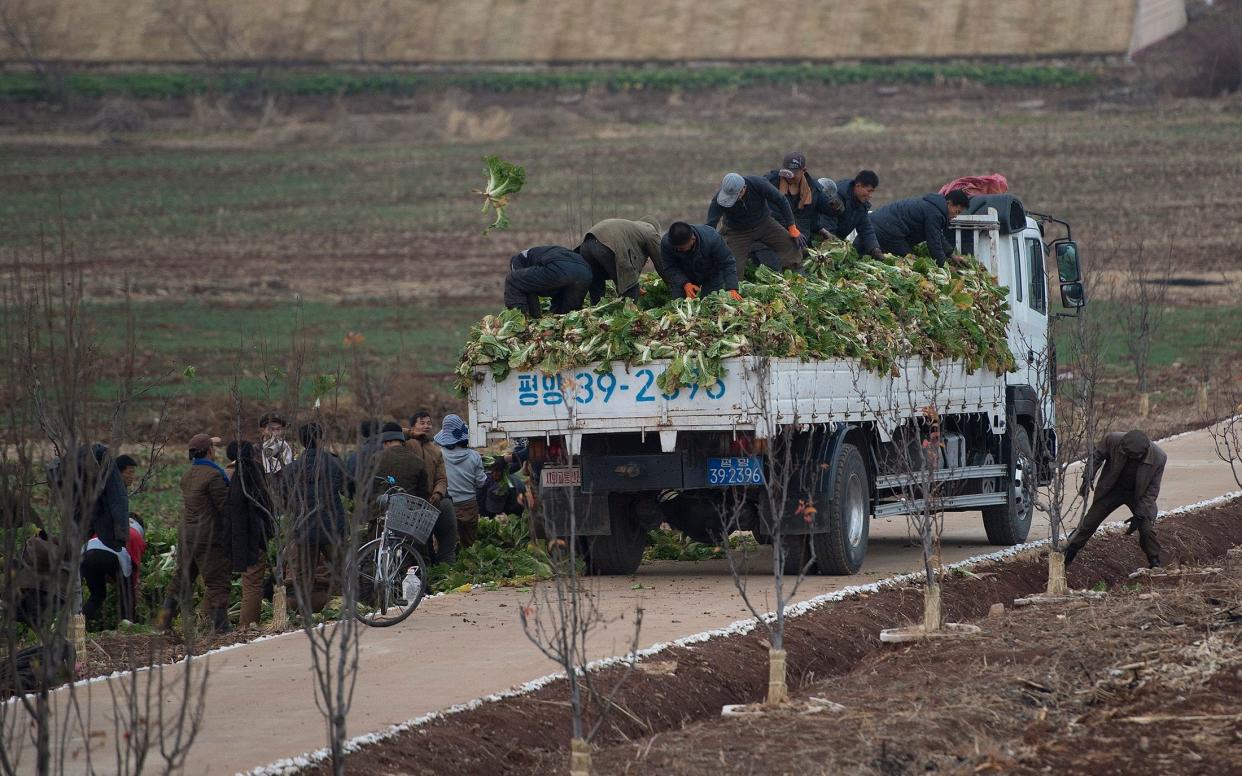New North Korean propaganda series fails to rally viewers

A new North Korean television series has reportedly been panned by audiences as people grow weary of relentless propaganda.
A source in North Hamgyong province told Radio Free Asia that a debut prime-time series called “Dedicate Yourself”, which extols the virtues of working in rural areas to solve food shortages, has left viewers unimpressed.
The TV show is said to depict the children of high-ranking officials renouncing their dreams of studying at Kim-Il-sung university in the capital, Pyongyang, to move to the countryside to help the North Korean regime meet its agricultural quotas.
“Viewers are criticising the premise, saying it is too far-fetched given North Korea’s current social realities,” the source said.
“The people wonder what more they should dedicate to the nation, saying they already must participate in the battle of fertilisation, the battle of planting, the battle of weeding and other agricultural initiatives the government created.”
In Pyongyang, flatscreen TVs are widely available, as is an online app called Mokran, which mimics the global streaming service Netflix.
But content is heavily censored and often didactic in nature, with story plots revolving around state-approved messaging.

In one of the most popular soap operas, ‘New Spring in Sokkyeul’, the main character is a returning Korean War hero who organises cooperative farming and roots out class enemies.
Meanwhile, white collar workers and school pupils are also co-opted at least once a year to spend a short period working on agricultural land as a form of national service.
Some fear, however, that the latest propaganda push signals that the regime predicts already dire food shortages will become much worse.
Last month, South Korea’s central bank revealed that the North’s economy shrank in 2018 by the most in 21 years after being hit by punishing sanctions to curb its nuclear weapons programme and by drought that had damaged its farming sector.
The news followed a stark warning the International Federation of Red Cross (IFRC) and Red Crescent Societies that rates of malnutrition and disease are increasing because of the poor harvest.
“We are already seeing the impacts of this drought on vulnerable people,” Mohamed Babiker, head of the IFRC’s office in North Korea, said in a statement.
Meanwhile, South Korea’s intelligence agency also briefed parliamentarians in Seoul that North Korea is expected to exhaust its crop reserves earlier than usual this year.
RFA’s source said some locals feared worse – “that we might face a second North Korean famine,” – referencing the first catastrophic North Korean famine in the mid-1990s when an estimated 240,000-3.5 million died from starvation or related diseases.


